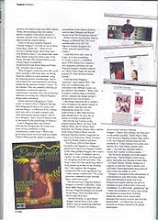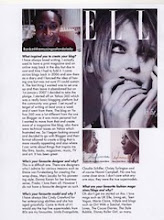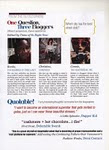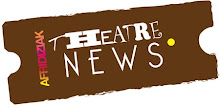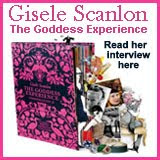 Nick Hornby, Mike Gayle, Matt Beaumont, Ben Elton and John O'Farrell have all played their part in shaping the image of modern male writers. Hornby and Elton have even had some of their books made into films. Enter Matt Dunn, a former hack who managed to bang out his first novel, Best Man while sunning himself in Spain. His second novel, The Ex Boyfriend's Handbook was so good that it bagged him a shortlist for the Romantic Novel of the Year Award and the Melissa Nathan Award for Comedy. The Margate native's talent lies in creating believable characters who are aggravating, fascinating but also very funny. His latest title, From Here to Paternity introduces us to Will Jackson, a general lad about town who is determined to become a Dad by hook or by crook. He employs very dramatic tactics to fulfill his dreams while entertaining us along the way. After totally falling in love with his last book, The Ex Boyfriend Handbook, I decided it was time to take Mr Dunn to task.
Nick Hornby, Mike Gayle, Matt Beaumont, Ben Elton and John O'Farrell have all played their part in shaping the image of modern male writers. Hornby and Elton have even had some of their books made into films. Enter Matt Dunn, a former hack who managed to bang out his first novel, Best Man while sunning himself in Spain. His second novel, The Ex Boyfriend's Handbook was so good that it bagged him a shortlist for the Romantic Novel of the Year Award and the Melissa Nathan Award for Comedy. The Margate native's talent lies in creating believable characters who are aggravating, fascinating but also very funny. His latest title, From Here to Paternity introduces us to Will Jackson, a general lad about town who is determined to become a Dad by hook or by crook. He employs very dramatic tactics to fulfill his dreams while entertaining us along the way. After totally falling in love with his last book, The Ex Boyfriend Handbook, I decided it was time to take Mr Dunn to task.It isn't everyday that you read a book about a guy who is desperate to be a Dad. How did you come up with the idea?
Because while several of my female friends were desperate to have kids, none of my male friends were (or would admit to it), and the fun in writing for me is to take some of those traditional male/female dilemmas and flip them around, so I started thinking, if there was a guy who actually felt like that, how would he behave? What would he do to achieve his goal? And it developed from there, really.
Modern fiction aimed at young women is obviously massive over here and in the US. Where do you think the male version fits in?
Well, judging from the emails I get, my books are read both by women and men, and I've been told that women read my books to get an insight into the workings of the male mind, while men read them just to take comfort in how pathetic we are when it comes to dealing with the opposite sex.
A few authors I have spoken to find the term Chick lit insulting, what do you think of the term, Bloke lit?
It's less insulting than Dick Lit, I suppose! I don't really mind how I'm classified, although if there's a possibility that it excludes part of your readership then that's obviously not a good thing. But these novels are hard to classify anyway - read the classic lad-lit novel, High Fidelity, and you'll see how that appeals to both men and women. Similarly, something like the Shopaholic series is so well written and funny that it has a much broader appeal than the pure 'chick lit' market. It's always other people who want to categorise, rather than the writers themselves, so there's not a lot you can do about it. Plus it's a bit strange that if blokes or lads can never talk about their feelings, then why should books about how they feel be classified as bloke or lad lit? All I try and do is write as good a book as possible, and hope that it doesn't exclude anyone from wanting to read it.
Your books tend to convey friendships between guys and how they behave towards each other. How do you manage this in your books?
By reproducing the kind of interactions I have with my friends. It's really how we are, you know!
The lead protagonist, Will is certainly a character. Do you know anyone like him?
Most of my characters are composites of people I know. It makes it easier to write them, and hopefully they come across as more realistic characters. And there's perhaps more than a little bit of me in him too.
How did you get into fiction writing?
I always wanted to do it, ever since I wrote something at school, read it out in front of the class and they laughed. It just took me longer than I'd planned before I actually decided to sit down and start writing a novel.
What authors do you admire and why?
There are so many, but in particular, Nick Hornby, for showing me there was a market for the kind of thing I wanted to write. David Mitchell, for being perhaps the most brilliant novelist today - I'd pay to read his shopping list. Will Self, simply because Great Apes is a work of genius.
What advice would you give to budding authors out there?
Start typing. It really is as simple as that. If you can manage a thousand words a day, you'll have finished your first draft in a few months. Read everything you can in your genre to give you an idea of the level required to get published. And edit yourself mercilessly.
The life of an author must be a busy one; can you describe a typical day?
Er... I sit at my laptop and write. For a couple of weeks a year it's busy, when you're involved in promotion and so on, but most of the time it's just you and your computer.
Where do you do most of your writing? Desk, garden, coffee shop?
Desk, staring at a blank wall. It's the best way. Distractions are a bad thing.
What project are you working on now?
My new novel. Sort of a sequel to my second book, The Ex-Boyfriend's Handbook.
From Here to Paternity is out now. You can check out Matt Dunn's website here.













